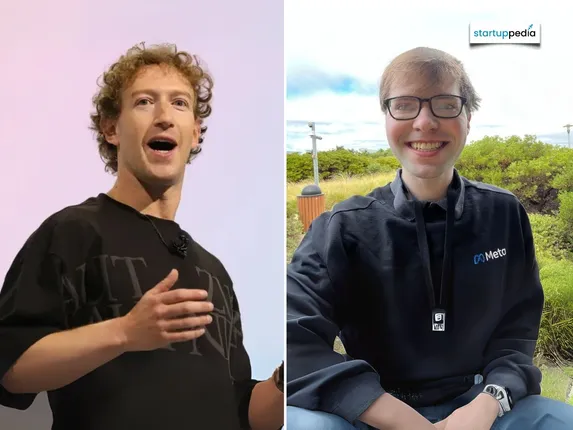Original author: Joe
Reprinted: Daisy, Mars Finance
In 2025, the most intense battle in the tech circle will not be over chips or platforms, but over people. Giants like Meta, Microsoft, Google, and OpenAI are competing for top AI researchers who can lead humanity towards 'AGI' with contracts worth hundreds of millions of dollars.
OpenAI CEO Sam Altman recently admitted in an interview with CNBC that this is the 'most intense talent market' he has seen in his career, but if you consider the economic value created by these individuals and our investment in computing, you'll know that the market may remain in this state for a long time.
When money is ignited like rocket fuel, the market, companies, and talent are pushed to unprecedented heights.
The Salary Competition Where Money Flies
In just one year, the salary ceiling for AI has been continuously rewritten. Meta CEO Zuckerberg personally stepped in to offer a 24-year-old researcher, Matt Deitke, a 4-year contract worth $250 million, with $100 million in the first year alone. These offers are mostly composed of high base salaries, huge signing bonuses, and immediate equity ownership.
Altman pointed out that giants are willing to bear costs because of the hope for breakthroughs in 'AGI' and the tens of billions of dollars in computing power invested behind it.

Researcher Matt Deitke was recruited by Zuckerberg to Meta
The perspective gap suggested by Altman
As the market focuses on a handful of star engineers, Altman raises a reflection: The truly breakthrough candidates may be far more numerous than external estimates suggest. He estimates that the number of people with key abilities globally could be in the thousands or even tens of thousands. 'I bet it's much larger than people think, but some companies only chase those shining names.'
He said: The concentration of bets by giants is a direct response to uncertainty and a gamble on the hope of a 'genius flash of inspiration'. We currently do not know the outcome. However, Altman hinted that true innovation may come from 'a few medium-sized individuals' making key breakthroughs in algorithms, rather than the most expensive stars of the moment.
Key to Talent Retention Beyond Money
However, high salaries are just entry tickets; whether one can retain talent depends on culture and mission. Although Meta's offers are astonishing, data shows that recruitment results are unstable. For example, Andrew Tulloch was reported to have turned down a $1.5 billion offer.
Many talents care about research freedom, cutting-edge challenges, and opportunities to collaborate with experts. Microsoft promotes a 'startup-like culture', Google emphasizes world-class computing resources, and OpenAI has announced a retention bonus of $1.5 million for all employees. Top engineers seek more than just money; they want to leave their mark at a historical turning point.
The chain reaction of industry and capital
In the future, capital expectations will further concentrate on a few AI giants and unicorns, making the 'bigger gets bigger' effect hard to ignore. For investors, it's essential to examine the impact of sky-high salaries on long-term profitability and shareholder returns; for startups, without unique technology or vision, it will be difficult to compete with giants.
But while money can ignite the flames of competition, it cannot determine victory or defeat. Creating an environment that inspires a sense of mission and sparks collaboration is also crucial. Altman emphasized that a vast and diverse talent pool is the real fuel for advancing 'AGI'. For Silicon Valley and Wall Street, finding a balance between high premiums and long-term innovation will determine the technological landscape of the next decade.
